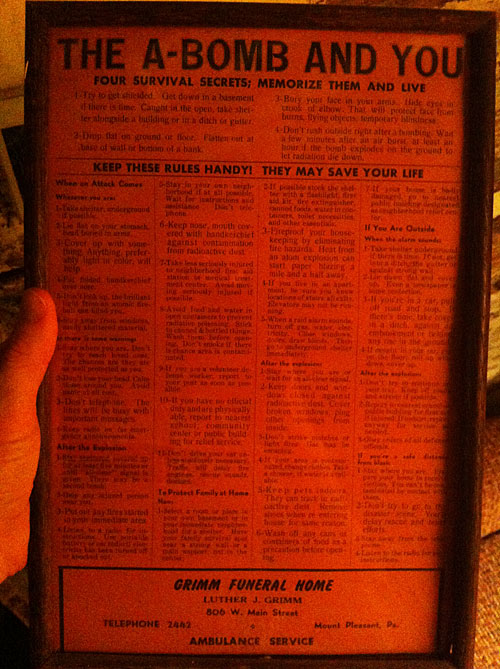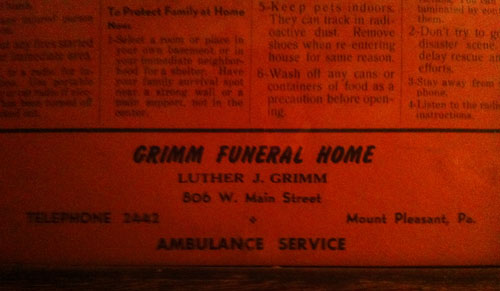- Pokémon Detective Pikachu (2019): Watched with Kat under certain influences, which was not a bad way to do it. I do not recommend this movie if matters like “the scale and logic of these events and creatures makes no sense” will bother you, but it has fun with itself, and in all honesty, I thought it executed on its premise with some similar notes but better than A Wrinkle in Time (2018).
- Duck Butter (2018): Also watched with Kat, who avowed that it was a decent depiction of lesbian dating on fast forward. It’s a very sexy (and also frank-to-the-point-of-unsexy) movie, and I enjoyed it! I got a little tired of the handheld camera and lens flare, a very pretty aesthetic that I prefer in measured doses. It’s always a treat to see Alia Shawkat and Mae Whitman hanging out, though. In what was either a goof or a very goofy in-joke, Kumail Nanjiani has a tiny role as an actor listed in the credits as “Jake” who… I think in the movie… then played a character named Kumail?
- Magic Mike XXL (2015): Rewatch, and in a proper ecstatic group setting, for this is holy writ.
- Bringing Up Baby (1938): Another movie I cannot recommend if “the logic of these creatures and events” etc etc, and I found it hard to buy any real chemistry between noted iconic beautiful bisexual people Cary Grant and Katharine Hepburn. Also there’s a scene between an actual terrier and an actual leopard that I cannot imagine the forerunners of the ASPCA were happy about. Not my favorite screwball or my favorite Grant, though I did enjoy how much he looked like a 21st-century avant-garde fashion icon in the scene where he’s running around in jodhpurs and tails.
- Mikey and Nicky (1976): Now, see, THERE is the darkness I could feel trying to creep in the seams of A New Leaf (1971). I can’t say I enjoyed watching a number of these scenes—the sexual coercion, physical abuse and race-baiting by the title characters is a hell of a choice to make—but then, this is a movie whose tagline was “don’t expect to like ’em.” Indeed I did not, tagline! But I did like seeing that May’s technical directing had advanced to a striking degree in the years between her first film and her third. The mini-doc on its creation on the Criterion disc stressed again and again that despite the fluid, improvised feeling of the rapport between John Cassavetes and Peter Falk (and May’s own background in improv), every line between them was in May’s script, and even their spontaneous interactions were under her direction. That is impressive, and almost as impressive is the story about how May got fired from her own movie but (saith Wikipedia) “succeeded in getting herself rehired by hiding two reels of the negative until the studio gave in.” I have no desire to watch this movie again, but if I had to choose between it and the following entry, I’d take this one.
-
Being There (1979): Man, this movie. It’s beautifully photographed and well acted and it’s not for me. I posted on Peach (yes, Peach) after I watched it that it seemed like the most old-school Republican movie I had ever seen, and got immediately questioned on that by my movie-watching friends. I will concede that director Hal Ashby and star Peter Sellers were by no means conservative voters. I didn’t miss the satire of the political and media classes woven through it, which I am certain would later influence Armando Iannucci: the shallow characters’ hunger for a novel face and twistable platitudes, and their projection of political guile or sexual prowess onto the blank canvas of a simple man.
But the shape of the actual narrative is at odds with that intent. The protagonist—well, the focus character, this movie has no protagonist—is simultaneously a naif and a cypher who spends exactly one day outside the lap of megawealth in his life. But he’s not an antihero, and the camera loves him. A lot of the plot is taken up with mourning the passing of Melvyn Douglas’s titan of industry, and the mourning is impossible for me not to read as genuine! I think that in 1979, before Reagan, this movie would have carried a lot of nostalgia for an era of bipartisan harmony between rich white men. I placed it next to the preceding movie because I think “don’t expect to like ’em” applies again for me here. The suits Sellers wears here have aged beautifully, but that central takeaway has not.
- Enter the Dragon (1973): Rewatch, as the conclusion to the Portland Intermittent Hong Kong Kung Fu Movie Club. When I last watched it in 2012, I was struck by how directly some of my old favorite nineties movies had lifted its scenes or sequences; this time I was struck by what a joy seems present behind the frame, despite the grim attitude of its story and its central character. In this case, neither all of the movie’s scenes nor all of its suits have aged well, but the sense that they knew they were making something special here persists.
-
Burning (2018): This is an adaptation of a Murakami short story, and I’m not particularly a Murakami fan; it is also a thriller that takes a solid eighty minutes—the length of some entire feature films—before the plot gets going. The full movie is 148 minutes long! But I was interested enough in the costuming and set dressing, which are meticulous and subtle, to stick with it and enjoy it. The core cast is fantastic, particularly Steven Yeun, and I was very glad that the frequently absent score kept from hammering home any of its ambiguous points.
For another take on Murakami that I really enjoyed, which does use music but lets you interpret the visuals, I recommend LeVar Burton reading “The Second Bakery Attack.”
- A Room with a View (1985): I’m pretty sure this is the first Merchant Ivory production I’ve watched, and I only sort of liked it. I have seen few movies about such a trivial and silly cast of characters, which is maybe part of the point, but I appreciated Maggie Smith and Judi Dench and Daniel Day-Lewis bringing some deft and unspoken dimension to their stock types. I was going to say “understated” there but then I backspaced over it because, you know, Daniel Day-Lewis. This movie has great costumes and some of the shots are just gorgeously composed, especially in the first act! But as far as rich people having flings in Italy go, I prefer The Talented Mr. Ripley (1999). I don’t know why I’m imagining being forced to choose between movies so many times in this roundup. Maybe because I’m writing this during my last week of opportunity to get things from Movie Madness?
- North by Northwest (1959): I don’t know if you’ve heard of this movie, but it’s pretty good. I didn’t enjoy Mad Men very much, but I think if I’d been familiar with Cary Grant’s character here, I might have felt a little more fondness for it. The thrill of a grasped reference goes both ways, too: when Hitchcock lingered on a long shot of Grant blinking down an empty stretch of road, I got to hammer my thigh and go “plane! plane! plane!” with great glee.
Speaking of a long journey that involves both Mount Rushmore and Chicago, this is the last roundup I will begin drafting in Portland! I am on track to get pretty few movies on the list in October, but I am hoping to follow this with at least one entry like those from my original road trip out west eleven and a half absurd years ago.


